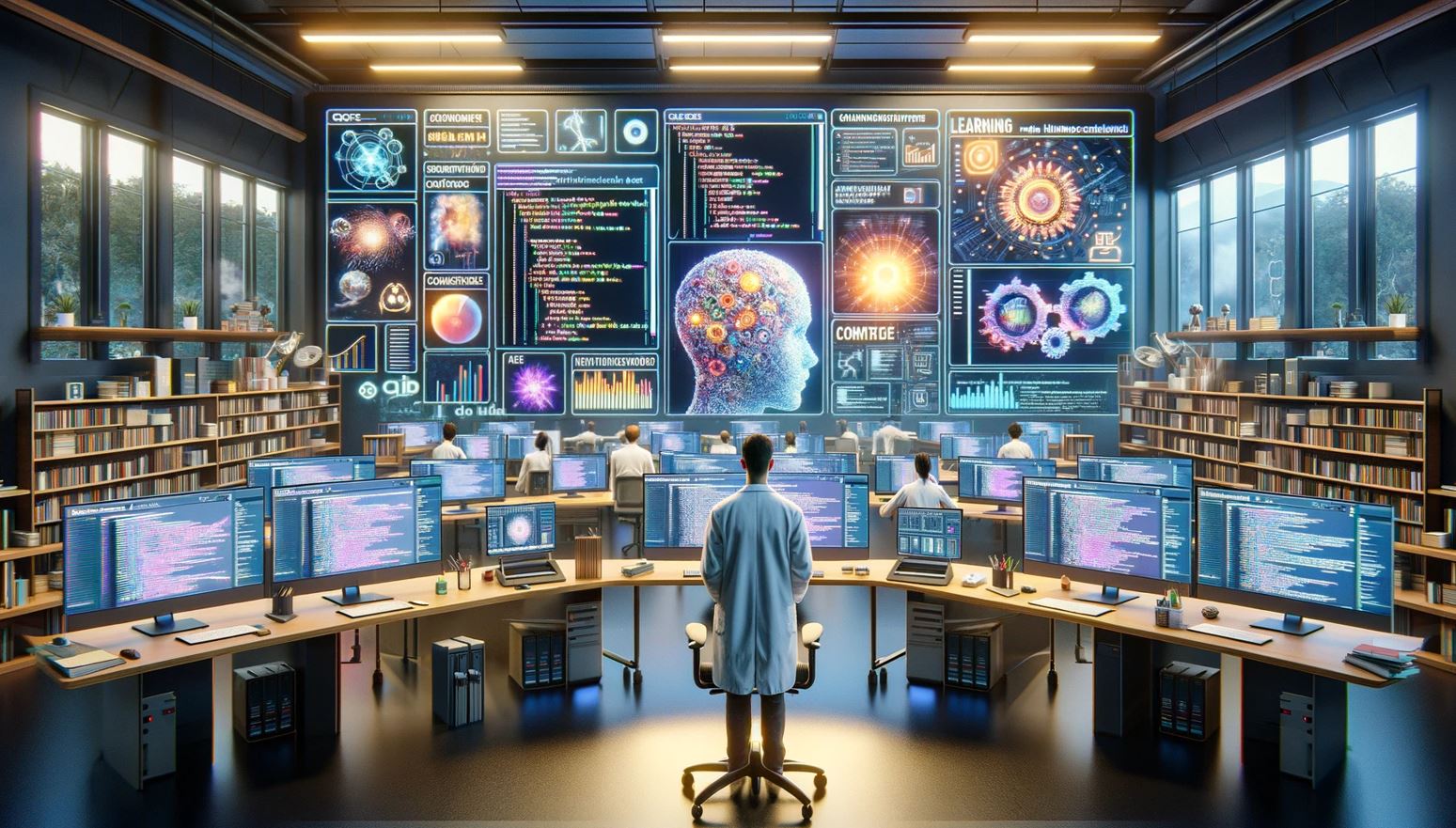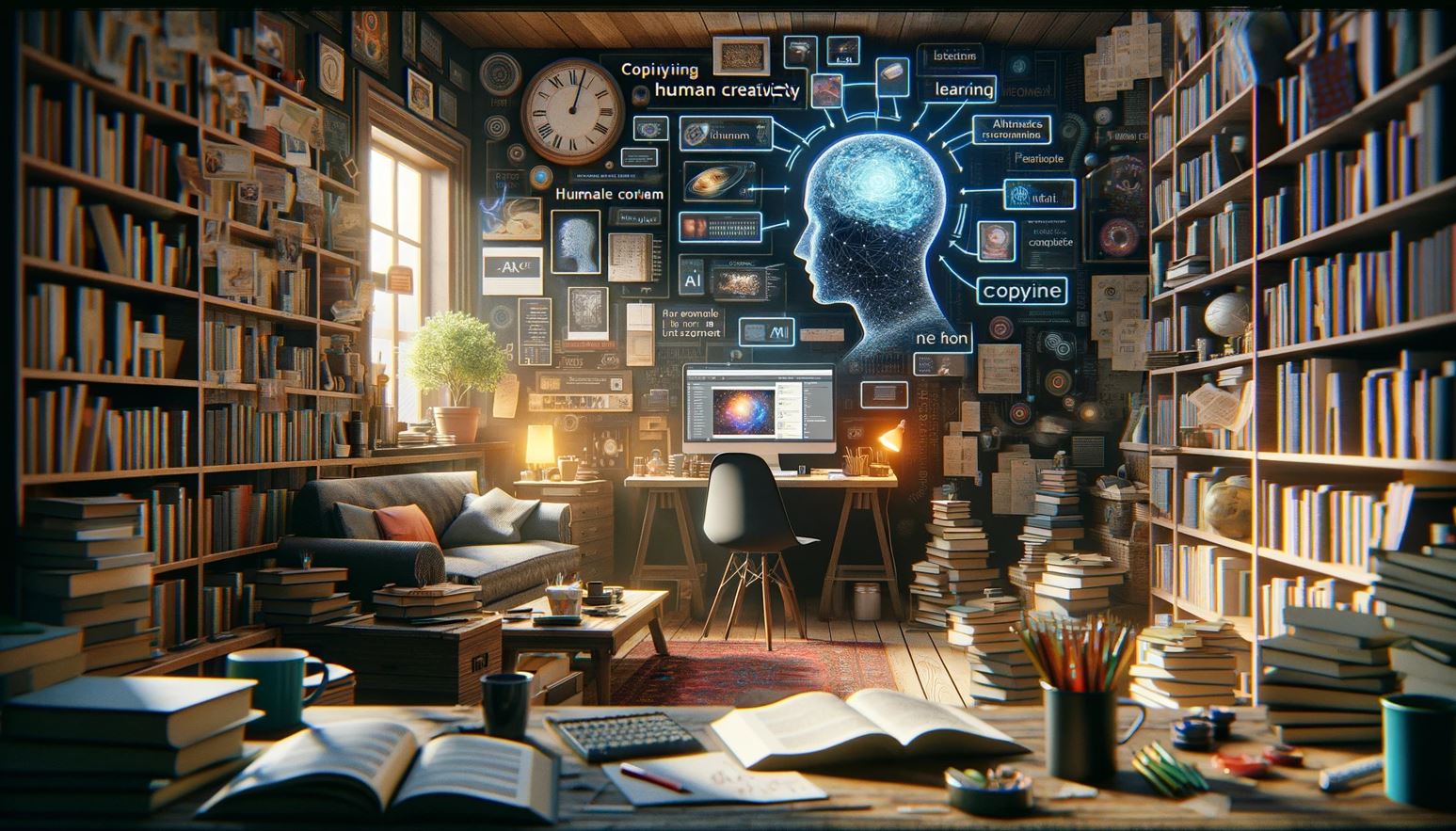With chats about cheating and copycatting running wild, it’s justifiable why you’d be circling this perplexing question: Is AI-generated text plagiarism?
Here’s one nugget to chew on: AI doesn’t outright pilfer phrases from works piece by piece.

Try these new AI-powered tools:
- 5 Best AI Detectors To Unmask AI-Written Content With Accuracy
- 5 Best AI Writers To Boost Your Productivity And Content Quality.
- This "Secret AI Writer" Can Bypass AI Detection Like A Pro.
But this techy topic isn’t all black-and-white. Peek through our blog kaleidoscope for a colorful spin on whether these silicon-brained scribes are stepping over ethical lines or playing nice in the sandbox of creativity.
Spoiler alert: We’re diving deep into gray areas where most fear to tread! Ready to unravel this riddle wrapped in a mystery inside an enigma? Keep reading, ’cause we’ve got some enlightening bytes coming your way!
So, is AI-generated text plagiarism? Let’s find out.
Article At-A-Glance
- AI-generated text is not simple plagiarism because it does not copy someone’s work word for word. Instead, it creates new content by learning from a large amount of data.
- Using AI to write essays or articles and claiming them as your own work can be considered cheating. This is called academic dishonesty.
- There are ethical worries when using AI text generators – like how they handle private information and ensuring that the writing doesn’t include anything harmful or false.
- People debate whether AI-written content should give credit to the human-made works that taught the machine.
- The rules around AI and writing are still uncertain, so we need to think carefully about fairness and originality in our use of technology for creating content.
Table Of Contents
Understanding Plagiarism And AI Content
Alright, let’s dive into the thick of things. We’re all in this to get a grip on what plagiarism really means when we throw AI-generated text into the mix—think of it as that grey zone where tech smarts meet writing norms.
It’s as if you’re trying to spot a chameleon in a bag of Skittles. You know there’s something different but can’t quite put your finger on it …. until now.
Read on as we’re about to unwrap this enigma with some real talk and zero sugar-coating.
What Is Plagiarism?
Plagiarism is like taking someone else’s work and saying, “Hey, I made this!” without giving them credit. It happens when people use others’ words or ideas and don’t say where they got them from.
Just imagine drawing a cool picture and someone else showing it off as their own. That’s not fair, right? Same thing with writing. If you don’t point out who originally thought of the stuff you’re sharing, well – that’s stealing in the world of writing.
It’s serious business too! Schools can fail students for it, writers can lose their jobs, and sometimes there are even legal problems because of plagiarism – yikes! That’s why folks always talk about academic honesty and ethical writing.
When creating anything new – an essay, a blog post, or a poem – using your own voice is key. Sure, getting inspired by others is part of being creative but always give a shoutout to those inspirations helps keep things square.
What Qualifies As AI-Generated Content?
AI-generated content comes from smart computer programs that work a lot like our brains. These programs, called algorithms, look at tons of info. They learn patterns and tricks to make new stuff—like articles or stories—all on their own.
It’s kind of like how you learn to ride a bike: fall seven times, stand up eight! The AI keeps trying until it gets it right.
It’s kind of like how you learn to ride a bike: fall seven times, stand up eight! The AI keeps trying until it gets it right.
Now imagine you feed the AI with loads of books, websites, and all sorts of written things people have created. The clever AI mixes everything up to spit out something fresh. That’s your AI-powered content creation magic! This isn’t just about choosing different words—it can even write whole pieces from scratch.
Yeah—and because it’s so sneaky-good, sometimes folks may not see the difference between what a human writes and what the algorithm spits out. But here’s the catch—we have to be honest about where it came from.
Transparency is key because nobody likes playing Guess Who with author credit!
The Debate: Is AI-Generated Text Considered Plagiarism?
When a machine spits out words after munching on a buffet of human-created texts, are we venturing into the murky waters of plagiarism or is this whole shebang something entirely new?
Now, we’re diving headfirst into the hot debate where lines blur and opinions clash: can we really cry copycat when it’s AI doing the typing?
Lack Of Direct Copying
So, AI doesn’t just take someone’s work and claim it as its own. That would be clear plagiarism, right? But here’s the cool part—AI creates stuff by learning from a huge mix of information.
It’s almost like making a smoothie with so many fruits that you can’t even tell which is which in the end! The key point? No direct copying.
Now, this gets people scratching their heads about what counts as original or not. Imagine drawing a picture without looking at anything for inspiration—it’s almost impossible! In that same way, AI mixes ideas to make something new.
Sure, everything comes from humans originally but think about it. If an AI writes a story after reading hundreds of books, is that stealing or just super smart inventing?

Potential For Customization
AI technology is pretty cool because it lets us make text that fits just what we need. Think of a tailor, someone who makes clothes that fit you just right. AI can do the same with words as it can create articles, stories, or any kind of writing that looks like someone made it just for you.
That’s customization!
Now imagine if the ideas in those words are super unique. This makes people scratch their heads—is this really okay? You see, when content feels new and different, folks start talking about whether it’s fair game or if someone’s stepping on toes (you know, intellectual property rights and all).
It gets tricky to say where copying ends and original work begins. Originality matters a lot in writing—no one wants to be called a copycat!
Trained On Human Content
So, we’ve seen that AI can tweak things to make them unique. But here’s the scoop: AI doesn’t just cook up ideas out of thin air. It learns from stuff people have created—a whole lot of articles, books, and websites.
This makes some folks wonder if using AI is like taking a shortcut by borrowing other people’s hard work.
This makes some folks wonder if using AI is like taking a shortcut by borrowing other people’s hard work.
Here’s the thing, the content an AI kicks out isn’t copied from one place—it mixes everything it’s learned to come up with something new. Picture it like a smoothie. You toss in strawberries, bananas, and a splash of almond milk—none of those are original on their own right? But blend them together and voilà! You get something different every time.
Sure, all these ingredients—the human content—are not made by the machine itself. Still, when it serves up fresh text after learning from tons of examples.. well, calling that “plagiarism” might be stretching it a bit too far.
Attempt To Deceive
Let’s get real, using AI to crank out an essay or article and then saying “I wrote this!” – that’s sneaky. It’s as if you’re wearing a mask pretending to be Shakespeare when really it’s the computer doing all the brainy stuff.
If you’re turning in a paper made by AI for school or using it for your college application essays, that could get messy. People call this academic dishonesty because you’re not being honest about who did the work.
Now picture this: You need to create something original, but instead of digging deep into your own thoughts, you ask an AI for help—without telling anyone. That’s when eyebrows start to raise.
Campuses are scratching their heads over students slipping in those AI-written pieces as if they’re their own genius words. Think of it like a magic trick where everyone thinks you pulled a rabbit out of a hat, but actually, the rabbit was just hiding up your sleeve the whole time.
Sneaky? Sure is! It’s playing with fire when we talk about what’s ethical and what’s crossing the line big time.
Ethical Concerns
AI is smart, but it’s not perfect. It can sometimes make mistakes that hurt people’s feelings or privacy. Imagine you’re reading something written by AI, and suddenly it talks about your secret information – scary, right? That’s why people worry a lot about how these smart machines handle things like private chats or personal details.
Then there’s the trouble with what feels fair. If an AI writes a story using bits from other stories made by real people, should it give credit to those folks? And who makes sure that the AI doesn’t say hurtful or wrong things? These questions don’t have easy answers, so lots of smart adults are trying to figure them out together.
Gray Area: Where Do We Draw The Line?
Talking about right and wrong, let’s dive into the tough spot we’re in. It’s tricky to figure out where the line is with AI and words. Think about it like this: when someone builds a robot using different parts from all over, who really owns that robot? It’s kind of like that with AI writing stuff.

Some people say ideas are free for everyone. But what if your brain work helps teach an AI, and then it spits out something awesome? Should you get credit for that? This is where our heads start to spin! We’ve got rules for things most people make by hand or think up themselves – those are usually clear-cut.
But digital content dances around these old rules because tech moves fast!
We wonder if an AI making something new from bits of our thoughts counts as stealing or just being super smart. Laws haven’t caught up yet to give us all the answers. So we keep asking ourselves – who gets the gold star for what AI makes – humans, machines, or both together?
It feels a bit like walking in a fog sometimes, trying not to step on anyone’s toes while sharing cool stuff made by clever code. What do you think? How can we play fair in this game where creativity meets technology?
Unraveling Ethics And Originality With AI-Generated Text
Alright, let’s get something straight – talking about whether AI writing is cheating is a hot topic. Now, just because AI doesn’t copy stuff word for word, that doesn’t mean we can ignore the rules.
Think about it like this: If you use an AI to do your homework, are you learning anything?
It’s kind of tricky, right? You’re not stealing words from someone else, but did you really create what the AI wrote down? And if everyone starts using AI for their essays and projects, whoa! That could seriously mess things up.
Here’s the thing – we have to be smart about how we use AI in writing. We can’t just say “cool” and forget about being fair and original. Let’s make sure our words are really ours!
FAQs
1. Can text made by an AI be called plagiarism?
Nope, AI-generated text isn’t plagiarism if it’s original and not copied from somewhere else.
2. Do I need to give credit to an AI if I use its writing?
Well… you don’t have to cite the AI, but it’s good to mention where your words came from, just in case.
3. Is using AI to write school essays cheating?
Yes, if your teacher wants you to write it yourself, then having an AI do it for you is kind of like cheating.
4. What if the AI copies someone’s work without me knowing?
It can happen – that’s why double-checking any work an AI gives you is super important!
5. Are there rules about using AI for writing things now?
Yeah, more and more people are making up rules about this stuff as we go along – pretty wild times!
Meet our resident tech wizard, Steve the AI Guy. Now, before you get any wild ideas, let’s clear up one thing – he’s 100% human! I mean, he’s got the work history to prove it. He spent a decade diving into the deep end of the tech industry doing business intelligence work, splashing around with two of the world’s largest business consulting companies, Deloitte and Ernst & Young. Learn More

